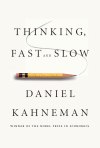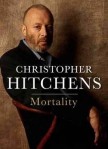What better way to start off a geeky science blog than to have a list of top books !! So, with drumrolls….Here is a list of 10 Science Books released in 2012, which i found to be cool:
1). Braintrust-What Neuroscience Tells us About Morality by Patricia Churchland 
Though the title may not be very catchy, but if you read the short description at the back you will be hooked !! This book had a lofty aim, and that was to explain Morality in terms of Neuroscience by cutting away the strange spiritualistic mumbo-jumbo surrounding it. And after reading the book, one definitely understands morality not as an abstract concept reserved for philosophers and quack spiritualists but a genuine scientific problem which can be dissected in the language of neuroscience. So, kudos to Patricia !!
2). The Origins of Sex: A History of the First Sexual Revolution by Faramerz Dabhoiwala 
In The Origins of Sex,Faramerz Dabhoiwala brings about a highly thorough study on the origins of sexuality in modern Western culture. Traditionally, sex had been strictly regulated by the Church, the state, and society. Between the 16th and 18th century, sex was considered quite a taboo subject and something which was not considered a private one either. Public punishments were in fact quite the norm. The book ends with a survey of post-1800 attitudes to sexual freedom and also addresses why there was a return to a more repressive culture in recent times.19
3). Wired for Culture: Origins of the Human Social Mind by Mark Pagel 
Wired for Culture, explores the idea that it’s the social nature of humans that has been the prime reason for the success of our species. The modern society views our inherent traits such as intelligence, language and consciousness as the major difference between us and other animals. However, Mark Pagel in this book tells us all these traits would have been useless without our propensity for social living, co-operation within and between groups. Culture has played an important role in natural selection which has resulted in us being quite hardwired for it. Mark brings in his expertise in different fields to bring about a cohesive answer of the question — Why we are so diverse despite being one species?
4).The Viral Storm: The Dawn of a New Pandemic Age by Nathan Wolfe 
The news has been dominated by the various pandemic like situations brought out by the greatest and the simplest organisms — VIRUSES !! This book by Nathan Wolfe, a professor at Stanford University is an account of how different kinds of viruses have affected our human society and how a global society such as ours has also increased our chances of being wiped out by a pandemic greater than the Spanish flu of 1918. This frightening scenario was also the topic of a recent movie – Contagion which showed us how a simple flu virus can bring down humanity to its knees. Nathan incidentally was also the consultant behind the movie, which why that movie was quite scientifically correct and didn’t end up in showing that the virus scare was a plot by Martian aliens bent on dominating earth for their energy needs !!
5).Bad Pharma: How drug companies mislead doctors and harm patients by Ben Goldacre 
No book list is complete without this book. Period!! Why? Well, that is because this is one of the few books which shows the bad side of pharma industry without invoking any conspiracy theories in its wake. The predeccosor of this book was the Bad Science, highlighted the “quack doctors, flaky statistics and scaremongering journalists“ in this big bad world. If you have watched the TED videos of Ben Goldacre and felt that “I should know more” than this book is for you.
6).Inside The Centre by Ray Monk 
Ray Monk’s book explores the life, struggles of Robert Oppenheimer-the man who detested his own legacy,The Atomic Bomb. He was quite a diverse personality since his interests ranged from atomic physics to astrophysics and science policy. His actual legacy has never been as the Father of the A-Bomb, but far more complex. Oppie, as he was affectionately known was prized during World War II and witch hunted in the McCarthy era. His biography hence is not an easy one but Ray Monk has in his book tried to bring together all his legacies together to achieve a sort of personal stamp, or a personal identity which he himself strived for throughout his life.
7). Ignorance: How It Drives Science by Stuart Firestein 
I start off by quoting from one of my favourite blogs – “Science is always wrong,” George Bernard Shaw famously proclaimed in a toast to Albert Einstein. “It never solves a problem without creating 10 more.” This book by Stuart Firestein is a homage to that statement. for i ask, What is Science without Ignorance? If one day we wake up to a world with everything known to its last detail, then that day would indeed be the saddest for humankind. Its mankind’s inhetrent curiosity and ignorance of the world it lived in which is responsible for all that we know now. I end by quoting from Stuart’s fine book –
“Science produces ignorance, and ignorance fuels science. We have a quality scale for ignorance. We judge the value of science by the ignorance it defines. Ignorance can be big or small, tractable or challenging. Ignorance can be thought about in detail. Success in science, either doing it or understanding it, depends on developing comfort with the ignorance, something akin to Keats’ negative capability.”
8). Connectome: How the brain’s wiring makes us who we are by Sebastian Seung 
Its always been and always will be a million dollar question – Are we a sum of our neurons? This book by MIT professor Sebastian Seung explores the tremendous growth of the so called “-omic” sciences. Despite the development of powerful computers and decreasing costs of sequencing we have been able to understand only the complete connectome of a 302 neuron organism, C,elegans. This connectome (complete wiring diagram documenting the links between the genome and proteome), though is only a part of story as one also needs to know the various neuronal and synaptic activity simultaneously. But to understand the complete synaptic activity , the first step is indeed to know the wiring diagram. Now think of a scenario, if we one day know the complete connectome and synaptic activity for a human being and in some distant future recreate them on an advanced super computer, would we be able to resurrect that person?? Well, that does sound like the story of MATRIX!! For more, read this book…
9). Thinking, Fast and Slow by Daniel Kahneman 
This book has been quite the tour de force of the year. The Nobel prize winning economist, Daniel Kahneman points out that how human brain is biased towards finding coherence where there is none, and that we are susceptible to a frightening level of overconfidence. This book can be layman’s explanantion of why a psychologist shared the Nobel prize for economics. It was because of his and Amos Tversky’s work published in 1974 about why economic and financial predictions so often go wildly wrong when they were (or so it was believed) so carefully and rationally made.
10). Mortality by Christopher Hitchens 
I end this book list by a homage to the polymath and in many ways my inspiration Christopher Hitchens. In this riveting account of his own affliction, Hitchens poignantly describes the torments of illness, discusses its taboos, and explores how disease transforms experience and changes our relationship to the world around us. By turns personal and philosophical, Hitchens embraces the full plethora of human emotions as cancer invades his body and compels him to grapple with the enigma of death. Hats off, Hitch !!
